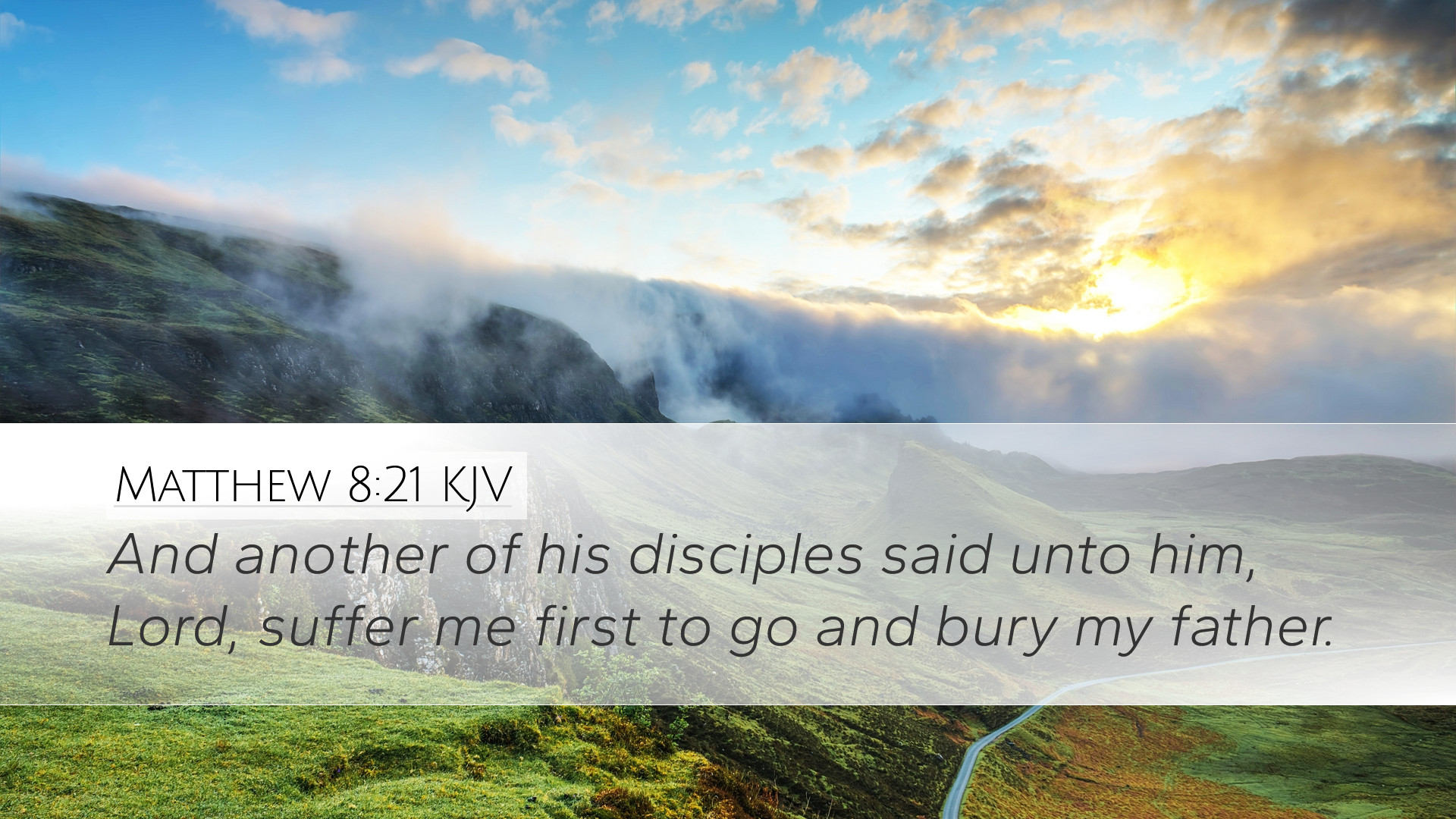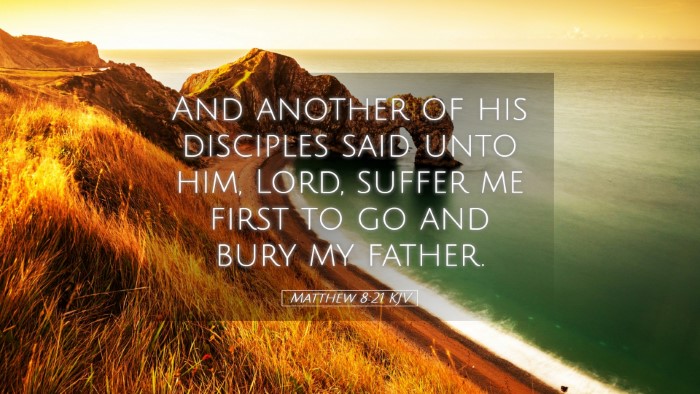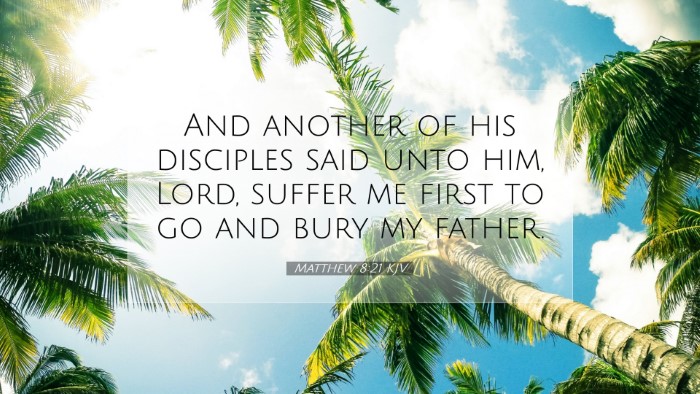Commentary on Matthew 8:21
Matthew 8:21: "And another of his disciples said unto him, Lord, suffer me first to go and bury my father."
This verse introduces a poignant moment in the ministry of Jesus, where the call to discipleship is contrasted with personal obligations and cultural traditions. In examining this passage, we draw insights from prominent public domain commentaries to explore its theological implications and practical applications.
Contextual Analysis
In the preceding verses, Jesus had demonstrated His authority over nature and sickness, which sets the stage for understanding the radical demands of following Him. The mention of 'another of his disciples' suggests that the individual was likely part of the inner circle, indicating that the call to discipleship requires significant sacrifice and commitment.
Matthew Henry's Commentary
Matthew Henry emphasizes the strictness of Christ's call: "It is a call to a higher duty, signaling that the priorities of the kingdom must come before personal or familial ties." He argues that while burial and mourning are significant, the spiritual mission supersedes temporal matters. Henry reminds us that this does not imply a lack of compassion for familial duties—instead, it highlights the overarching importance of our commitment to Christ.
Albert Barnes' Interpretation
Albert Barnes points out that the disciple's request is a common human inclination to postpone spiritual commitments for the sake of worldly duties. He writes, "The request to 'go and bury' reflects an understandable desire, yet Jesus' response invites us to consider how earthly priorities can hinder heavenly pursuits." Barnes further elucidates the cultural implications, noting that the act of burying one’s father was a crucial obligation, and yet, Jesus calls for immediate and unreserved allegiance.
Theological Implications
Both Henry and Barnes converge on the idea that discipleship demands a level of urgency and sacrifice that transcends societal expectations. Theologically, this raises questions about the nature of commitment to Christ in light of our earthly responsibilities. Discipleship can often require sacrifices that feel unnatural or uncomfortable to our social selves.
Adam Clarke's Perspective
Adam Clarke broadens our understanding by suggesting that the phrase 'suffer me first' may imply a condition or a reservation within the disciple's heart. Clarke interprets this as a limitation of trust in Christ's provision for the future. "The implied request for delays," Clarke insists, "is a sign of a heart that clings to the familiar rather than embracing the radical call of the gospel." Clarke's insight underlines a crucial theological thought: our inclination to delay obedience can often stem from a lack of confidence in God's timing and plans.
Practical Applications
- Urgency of Discipleship: Believers are challenged to assess what worldly obligations may be delaying their obedience to Christ. This passage serves as a prompt for self-reflection on what comes before God in our lives.
- Understanding Sacrifice: The call to follow Jesus often involves sacrifices that may seem drastic. Understanding this from a theological lens helps believers frame their sacrifices as necessary for the greater mission of the kingdom.
- Faith in God’s Provision: This narrative encourages faith in God’s plans, encouraging believers to trust in God's guidance and provision as they prioritize spiritual commitments over earthly concerns.
Conclusion
Matthew 8:21 serves as a powerful reminder of the cost of discipleship. The insights from public domain commentaries highlight a critical theological principle: following Christ may often require the relinquishment of our earthly ties and priorities. As pastors, students, theologians, and scholars reflect on this text, may they be encouraged to fully embrace their call without hesitation, trusting in God's ultimate provision and purpose for their lives.


